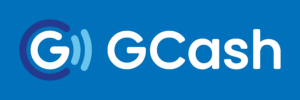With the help of GCash, the leading mobile wallet in the Philippines, the City of Makati will disburse the second tranche of financial assistance to over 8,000 drivers to help them cope with the national health crisis and aid them in providing for their families.
According to Makati City Mayor Abby Binay, each of the 8,376 jeepney, tricycle, and pedicab drivers in Makati will receive P2,000 via their GCash accounts. Broken down, the beneficiaries are: 5,952 registered tricycle drivers, 598 pedicab drivers, and 1,826 jeepney drivers who are part of the Makati Jeepney Operators and Drivers Association (JODA).
This is the second tranche of the local government’s initiative to provide P16.7 million financial assistance to the city’s transportation sector via electronic means to ensure transparency and to avoid physical transactions in light of the dangers brought by COVID-19.
The first tranche of the financial aid was disbursed three weeks ago via manual cash distribution, but the City of Makati found that handing out financial aid via GCash is much faster and more efficient versus having city hall employees go through each house to send money.

“Drivers who are Makatizen cardholders will receive their financial aid through their GCash e-wallets. We will also course through GCash the cash grant for our citizens who have yet to receive their Makatizen Cards. It’s a big help for both the city and its residents not only because it’s a faster way of transferring money for everyday use, but also because it also promotes public health by avoiding physical contact,” said Makati City Mayor Abby Binay.
Health experts around the world have found that paper money increases the risk of viral transmission since harmful bacteria and viruses can survive on its surface for several days. Given the safety protocols implemented by the government this past month, digital fund transfers are becoming the norm.
Establishments ranging from grocery stores to organizations collecting donations have shifted
to digital financial services like GCash for a more efficient way of transacting and transferring money amid the pandemic. Government units also are encouraged to utilize such platforms to promote accountability and health safety in the distribution of financial aid to intended beneficiaries.
Makati is the first city in Metro Manila to implement contactless financial assistance through GCash and the Makatizen Card.
Likewise, the City of Makati will be creating GCash accounts for non-Makatizen card holders based on the mobile number and other information that they have provided to the local government.
Once they receive the financial aid, beneficiaries can opt to use their card or e-wallet to buy food, medicines, and other products from grocery stores, convenience centers, and even pharmacies. They may also use the funds to pay their utility bills or government dues, or even transfer cash to their loved ones through the GCash app.
Recipients of the financial aid may also cash out or withdraw the money through authorized GCash Cash In/Cash Out agents. They only need to present a government issued ID and a text message showing the remittance of the financial assistance to their Makatizen card or GCash e-wallet.
Through its digital wallet, GCash has paved the way for 20 million Filipinos to have a safer and more efficient way of transacting either online or offline. With roughly 70,000 partner merchants across the archipelago, GCash users can dispense with the use of paper bills whenever they need to buy their essentials to protect themselves from the virus.
“We at GCash always strive to provide relevant services to our customers. Seeing our platform being used by local governments as a conduit for financial assistance to help their citizens cope with the national health crisis encourages us further to focus on creating impact to the ways of people, businesses, government institutions, and organizations especially during these very challenging times,” GCash Chief Technology and Operations Officer Pebbles Sy said.




